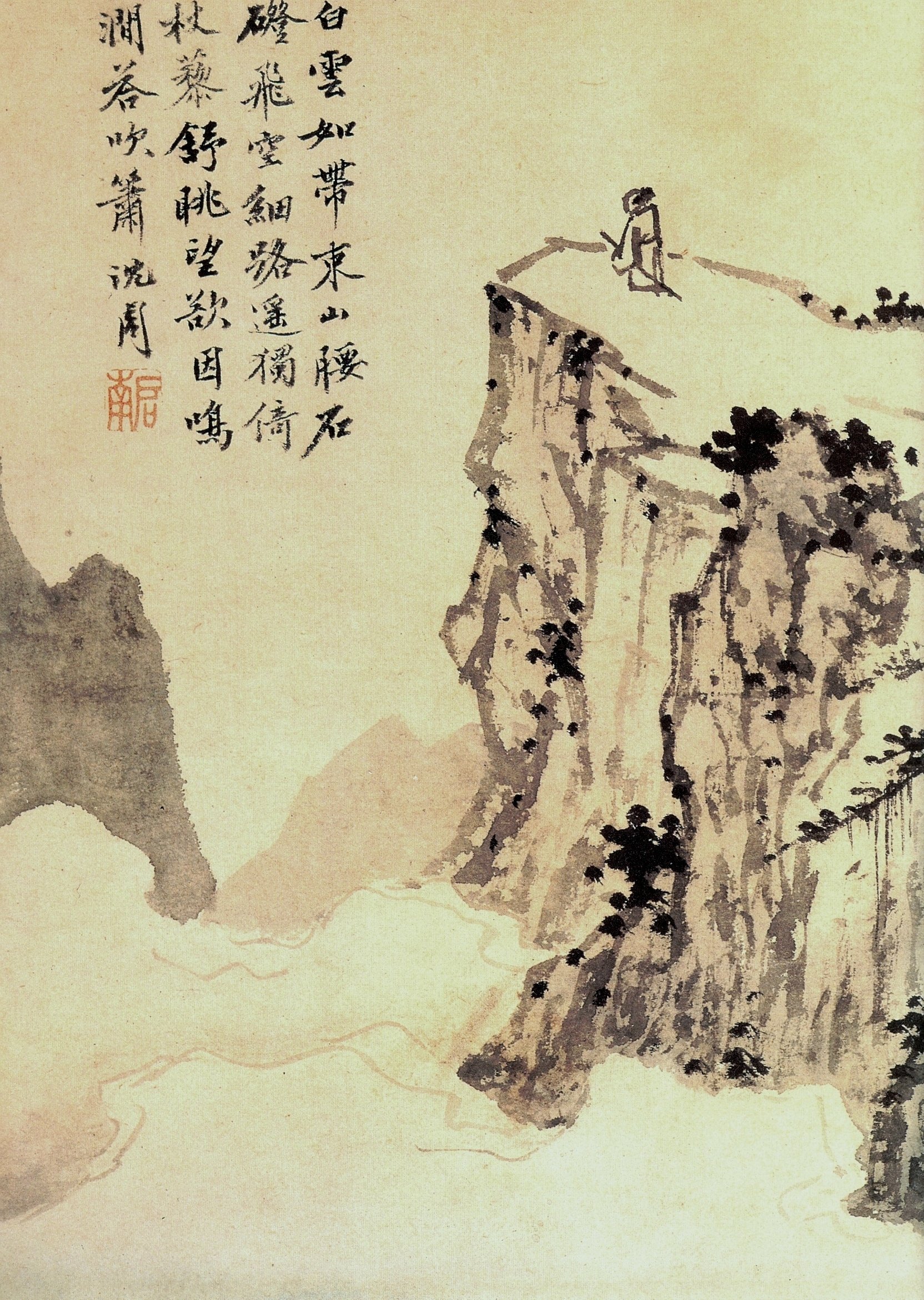
Teaching Aid for Episode 8: The Enemy of Morality Is Not Modernity, It’s Me
Teachers: please read the introduction to these teaching aids first.
Pre-Listening Journal/Discussion Questions
What comes to mind when you think of mountaineering and rock climbing? Why do people climb mountains? Do you think the desire to ascend high peaks is innate to human nature, or is it a purely modern experience?
Browse the images of mountains and climbing in the Image Gallery. What do these images suggest about why people, both past and present, climb mountains?
Listening Guide
What is the role of moralism in great literature? What aspects of David Foster Wallace’s work have earned him a reputation as a moralist? What might he have thought about this label and why?
What is teleology? According to Alisdair MacIntyre in his book After Virtue, how did the rejection of the teleological notion of virtue by Enlightenment philosophers affect the common view of morality in the 20th century?
Which biographical similarities do David Foster Wallace and Samuel Johnson share, despite the fact that they lived 200 years apart?
The Literary World that Shaped David Foster Wallace [8:36-10:57]
What, according to David Foster Wallace, are three shticks of postmodernism?
What appealed to Wallace about postmodern literature early in his career?
The Literary World that Shaped Samuel Johnson [10:57-17:20]
What is the purpose of satire, according to its 18th-century proponents? How does this compare with the purpose of postmodern irony?
Despite the ostensible moral purpose of satire, what made Johnson uncomfortable with it? How was Johnson’s approach, satire manqué, different from the satire of his predecessors and contemporaries?
The Hardships and Struggles that Shaped Johnson and Wallace [17:20-30:15]
What aspects of Johnson’s own life may have inclined him to voice compassion in his writing rather than pure ridicule?
What role did Wallace’s recovery from addiction play in his relationship to postmodern irony and sarcasm?
How do Wallace’s post-recovery views on postmodern irony and sarcasm resonate with Johnson’s post-depressive objections to the satire of his own time?
How did Wallace understand “addiction” in contemporary American culture?
What became Wallace’s (and Johnson’s) greatest challenge as writers?
According to biographer D.T. Max, what difficult literary problem may have contributed to Wallace’s suicide?
In contrast to Johnson’s faith in Christianity, what did Wallace see as the only “capital-T Truth?”
What is emotivism, and how might it have posed a challenge to the moralist work that Wallace felt compelled to do?
What, according to episode producer Kirsten Hall Herlin, did Johnson succeed in doing, where Wallace failed, and why? Despite this, why does Herlin see Wallace’s life and writing as still being compelling and worthwhile for readers today?
What does Wallace claim is “the really important kind of freedom?”
Post-Listening Journal/Discussion Questions
In the context of this podcast, it could be claimed that postmodernism (as well as the satirical literature of Johnson’s day) is really just “modernity thinking” in disguise–claims that we have so completely ruptured from the past that the only appropriate attitude towards the past is one of cynicism, irony, and sarcasm. To what extent does this kind of “modernity thinking” deserve a space in our literature, art, and thought? To what extent does it limit our engagement with the resources of the past and our ability to flourish in the present? How do the postures of compassion (as exemplified by Johnson) and humility (as exemplified by Wallace) allow for a more nuanced and edifying engagement with the past, even when we are highly aware of, and reactive to, the faults of the past?
What is the place of morality in present-day literature?
Links for Further Exploration
Transcript of “This is Water” by David Foster Wallace
Audio of “This is Water” by David Foster Wallace
“The Vanity of Human Wishes” by Samuel Johnson
“Imagining the Audience into Being”: This 5-minute animated video, produced by Genealogies of Modernity, explores how changing technology has affected both the audiences and the tellers of stories.
